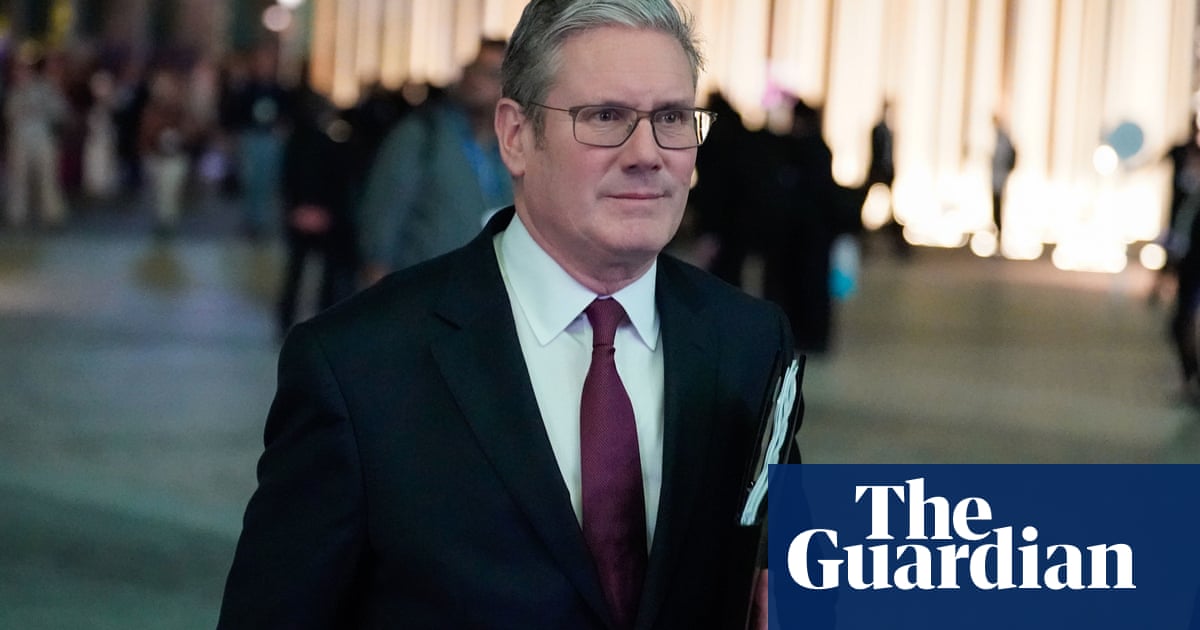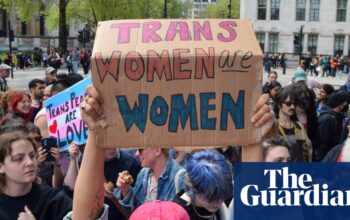
On Monday, Keir Starmer will declare that if Labour wins the next election, they will not increase spending, supporting the belief of several high-ranking Labour members that he intends to agree to public sector cuts resembling austerity measures.
The leader of the Labour party plans to deliver a speech about the economy, cautioning that Britain is facing its worst economic condition in over 50 years. This will set the stage for anticipated strict budget limitations by shadow ministers following the upcoming general election.
This is the first instance where Starmer has publicly addressed the future of public sector spending since last month’s autumn statement. The statement indicated that the UK is headed towards further reductions in public sector funding after the election.
During a speech to the Resolution Foundation, he will state that those who anticipate a Labour government to rapidly increase spending will be let down. He also mentions that the current government’s actions and track record from the past 13 years will limit the potential actions of a future Labour government.
He will add: “This parliament is on track to be the first in modern history where living standards in this country have actually contracted. Household income growth is down by 3.1% and Britain is worse off.
“This isn’t living standards rising too slowly or unequal concentrations of wealth and opportunity. This is Britain going backwards. This is worse than the 1970s, worse than the recessions of the 1980s and 1990s, and worse even than the great crash of 2008.”
In anticipation of next year’s election, Starmer will emphasize that current conditions are significantly more challenging compared to 2010 when the Conservative and Liberal Democrat coalition government implemented their austerity policies. He stated, “Never before has a British government demanded such high payments from its citizens for meager returns.”
The shadow chancellor, Rachel Reeves, has stated that the Labour party will not make unfunded promises regarding government spending or tax increases beyond what they have already planned. These limitations restrict the party’s ability to increase government spending in order to alleviate strain on the UK’s overburdened public services.
The challenges for the future government intensified following the recent autumn statement by Chancellor Jeremy Hunt. He declared a £20 billion tax reduction, funded partly by anticipated reductions in public spending comparable to those implemented by the previous government under David Cameron.
According to estimates from the Office for Budget Responsibility, departments without protection will experience a 4.1% decrease in their budgets each year during the upcoming government term. Torsten Bell, head of the Resolution Foundation, described these expected budget cuts as “unrealistically significant”.
Starmer and Reeves have yet to determine if they will mirror the Conservative’s spending plans for the initial years of a potential Labour administration, following the footsteps of Tony Blair and Gordon Brown in the 1997 election.
Despite this, numerous opposition leaders anticipate that both he and Reeves will opt to follow the projected spending restrictions, although they are optimistic that any extra economic growth will be allocated towards government expenditures rather than reductions in taxes.
Certain individuals claim to be ready to embrace the upcoming reductions, but they also insist that the Labour party must remain committed to their promise of investing in capital initiatives as outlined in the £28 billion green prosperity proposal, despite its recent dilution.
One person stated that they are willing to make cuts in the department as long as there is funding available for improving neglected schools, hospitals, and roads.
On Monday, Starmer will announce that the Labour party’s main focus will be on promoting growth through a set of measures such as changes to planning regulations, lower business taxes, and better protection for workers.
after newsletter promotion
“The primary focus of the upcoming Labour government, the ultimate mission, will be to increase productivity growth in Britain,” he will state. “This goal is now an obsession for my Labour party – a significant shift for us. Making wealth creation our top priority is not something the Labour party has always been comfortable with.”
Nevertheless, there are those who caution that adhering to Conservative budget proposals will have a significant negative impact on the country’s economic productivity. Bell stated following the autumn statement that it would be difficult to find a policy that hinders growth more than the proposed reductions in public-sector wages.
Choosing to adopt the same budget proposals as the Conservative party is predicted to cause additional tension between the Labour leadership and the party’s supporters. Several MPs and members are already upset with Starmer for not advocating for a ceasefire in Gaza, and his recent commendation of former Tory prime minister Margaret Thatcher only added to their frustration.
The leader of the Labour party chose Margaret Thatcher as one of three previous prime ministers he would model himself after if he were to become prime minister. The other two were former Labour leaders Tony Blair and Clement Attlee. He noted that all three had a strong determination and clear vision that characterized their time in office.
Starmer stated during an interview with BBC Radio 4’s Broadcasting House on Sunday that while he may not agree with Thatcher’s actions, it cannot be denied that she had a clear vision and drive for entrepreneurialism.
He wrote in a Sunday Telegraph article that true change in British politics starts with the understanding that politics should serve the British people instead of controlling them. Margaret Thatcher aimed to awaken Britain from its stagnation by unleashing our innate entrepreneurial spirit.
Starmer acknowledged that one motive behind his remarks was to attract hesitant Conservative supporters, given that surveys indicate a significant portion of the public has yet to decide on their voting choice for the upcoming election.
Source: theguardian.com


